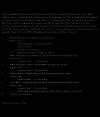Leaders' perspectives on learning health systems: a qualitative study
- PMID: 33243214
- PMCID: PMC7689994
- DOI: 10.1186/s12913-020-05924-w
Leaders' perspectives on learning health systems: a qualitative study
Abstract
Background: Integrated utilisation of digital health data has the power to transform healthcare to deliver more efficient and effective services, and the learning health system (LHS) is emerging as a model to achieve this. The LHS uses routine data from service delivery and patient care to generate knowledge to continuously improve healthcare. The aim of this project was to explore key features of a successful and sustainable LHS to inform implementation in an Academic Health Science Centre context.
Methods: We purposively identified and conducted semi-structured qualitative interviews with leaders, experienced in supporting or developing data driven innovations in healthcare. A thematic analysis using NVivo was undertaken.
Results: Analysis of 26 interviews revealed five themes thought to be integral in an effective, sustainable LHS: (1) Systematic approaches and iterative, continuous learning with implementation into healthcare contributing to new best-practice care; (2) Broad stakeholder, clinician and academic engagement, with collective vision, leadership, governance and a culture of trust, transparency and co-design; (3) Skilled workforce, capability and capacity building; (4) Resources with sustained investment over time and; (5) Data access, systems and processes being integral to a sustainable LHS.
Conclusions: This qualitative study provides insights into the elements of a sustainable LHS across a range of leaders in data-driven healthcare improvement. Fundamentally, an LHS requires continuous learning with implementation of new evidence back into frontline care to improve outcomes. Structure, governance, trust, culture, vision and leadership were all seen as important along with a skilled workforce and sustained investment. Processes and systems to optimise access to quality data were also seen as vital in an effective, sustainable LHS. These findings will inform a co-designed framework for implementing a sustainable LHS within the Australian healthcare and Academic Health Science Centre context. It is anticipated that application of these findings will assist to embed and accelerate the use of routine health data to continuously generate new knowledge and ongoing improvement in healthcare delivery and health outcomes.
Keywords: Data-driven healthcare, evidence, healthcare improvement; Informatics; Learning health system.
Conflict of interest statement
The authors declare that they have no competing interests.
Figures


Similar articles
-
Realist evaluation of allied health management in Queensland: what works, in which contexts and why.Aust Health Rev. 2019 Aug;43(4):466-473. doi: 10.1071/AH17265. Aust Health Rev. 2019. PMID: 30158050
-
Using Learning Health System Principles to Embed Patient Experience Data in Primary Care: A Qualitative Investigation.Int J Health Plann Manage. 2025 Mar;40(2):368-380. doi: 10.1002/hpm.3880. Epub 2024 Dec 9. Int J Health Plann Manage. 2025. PMID: 39654048
-
Positioning patients to partner: exploring ways to better integrate patient involvement in the learning health systems.Res Involv Engagem. 2023 Jul 10;9(1):51. doi: 10.1186/s40900-023-00459-w. Res Involv Engagem. 2023. PMID: 37430380 Free PMC article.
-
Identifying requisite learning health system competencies: a scoping review.BMJ Open. 2022 Aug 23;12(8):e061124. doi: 10.1136/bmjopen-2022-061124. BMJ Open. 2022. PMID: 35998963 Free PMC article.
-
The role of co-production in Learning Health Systems.Int J Qual Health Care. 2021 Nov 29;33(Supplement_2):ii26-ii32. doi: 10.1093/intqhc/mzab072. Int J Qual Health Care. 2021. PMID: 34849971 Free PMC article. Review.
Cited by
-
A Learning Health System Framework to Operationalize Health Data to Improve Quality Care: An Australian Perspective.Front Med (Lausanne). 2021 Oct 27;8:730021. doi: 10.3389/fmed.2021.730021. eCollection 2021. Front Med (Lausanne). 2021. PMID: 34778291 Free PMC article.
-
The value of maternity care in Queensland, 2012-18, based on an analysis of administrative data: a retrospective observational study.Med J Aust. 2023 Dec 11;219(11):535-541. doi: 10.5694/mja2.52156. Epub 2023 Nov 8. Med J Aust. 2023. PMID: 37940105 Free PMC article.
-
Implementation strategies and outcome measures for advancing learning health systems: a mixed methods systematic review.Health Res Policy Syst. 2023 Nov 27;21(1):120. doi: 10.1186/s12961-023-01071-w. Health Res Policy Syst. 2023. PMID: 38012681 Free PMC article.
-
Continuous quality improvement across a South Australian health service and the role it plays in a learning health system: a qualitative study.BMC Health Serv Res. 2025 Mar 27;25(1):457. doi: 10.1186/s12913-025-12557-4. BMC Health Serv Res. 2025. PMID: 40148960 Free PMC article.
-
Organizational Leaders' Views on Digital Health Competencies in Medical Education: Qualitative Semistructured Interview Study.JMIR Med Educ. 2025 Mar 7;11:e64768. doi: 10.2196/64768. JMIR Med Educ. 2025. PMID: 40053774 Free PMC article.
References
-
- Melder A, et al. An overview of healthcare improvement: Unpacking the Complexity for Clinicians and Managers in a Learning Health System. IMJ;2020;50(10):1174-84. - PubMed
-
- Ovretveit J, Nelson E, James B. Building a learning health system using clinical registers: a non-technical introduction. J Health Organ Manag. 2016;30(7):1105–18. - PubMed
MeSH terms
Grants and funding
LinkOut - more resources
Full Text Sources

